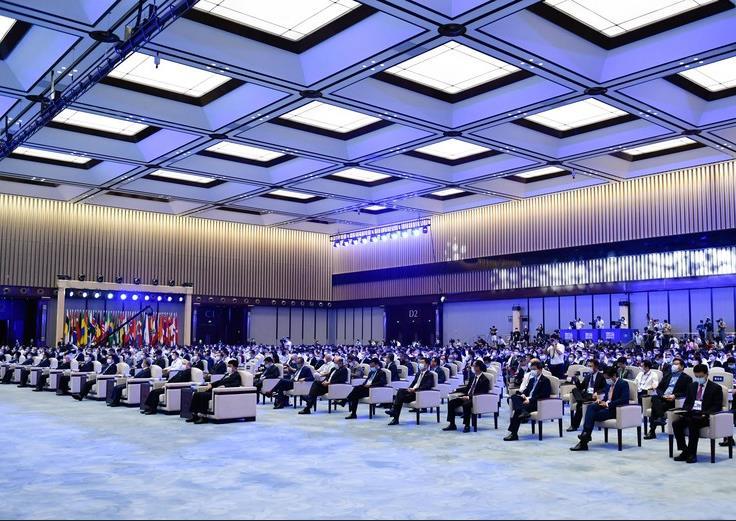HANGZHOU, Sept. 29 (Xinhua) -- As digital technology is being fully integrated into the production and life of humankind, China is stepping up efforts to improve its digital governance to create better lives for all.
At an expo titled "the Light of Internet," various types of cutting-edge digital technologies and products empowering digital governance and promoting inclusive development were showcased to the audience. The expo was held as part of the 2021 World Internet Conference Wuzhen Summit, which concluded on Tuesday in Wuzhen, east China's Zhejiang Province.
Zhejiang, which has been designated as a demonstration zone for promoting common prosperity, is driving its governance modernization with digital reform.
For instance, Wusi Village in Huzhou City has benefited from the local government's efforts to build the first 5G base station in the village. Dynamic data about the production, life and ecological environment of the village was displayed on digital platforms, providing valuable information for the government to improve public services for rural residents.
"Thanks to the convenience and the opportunities brought by the digital transformation, more and more young people have chosen to come back to start businesses and live in the village," said Sun Guowen, Party secretary of Wusi Village.
Other healthcare services have adopted digital medical care to effectively facilitate high-quality medical resource distribution, enabling residents, especially those in remote areas, to access high-quality medical services without leaving home.
At Wuzhen Internet Hospital, patients can make consultations online, get their e-prescriptions, and make medical insurance claims via their mobile phones. One of the earliest adaptors of this technology, the hospital's medical platform connects with 31 Internet hospitals across the country, and nearly 20 of them have been covered by medical insurance.
The stories of Wusi village and Wuzhen epitomize China's actions to enhance digital governance efficiency through digital innovation to benefit more people. To reduce the regional gap and advance inclusive development, the country has actively developed public services in digital forms such as online classrooms and "smart" libraries.
China's efforts in enhancing digital governance efficiency have been recognized by the world. According to the 2020 United Nations E-Government Survey, China's Online Service Index (OSI), as a core index to measure the development of national e-government services, has risen sharply to 9th place in the world.
Meanwhile, with the rapid development of digital technologies, cybersecurity has been facing new challenges. To better capture the "digital dividends," China has formulated laws and regulations to sustain the healthy development of the Internet industry.
The Standing Committee of the 13th National People's Congress, China's top legislature, has adopted a new law on personal information protection. The law makes provisions prohibiting the excessive collection of personal information and big data-enabled price discrimination against existing customers. Enditem




 A single purchase
A single purchase









